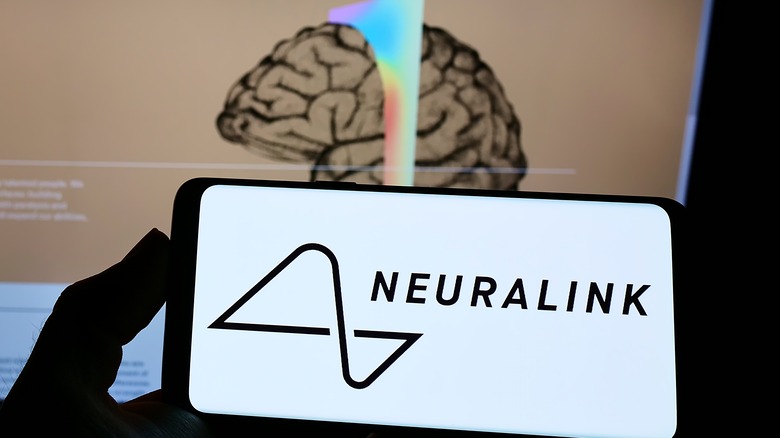At Least 8 Monkeys Died During A Neuralink Experiment
Elon Musk, the world's number one billionaire, has his hands in many business pies, including his space travel company SpaceX, his electric car company Tesla, and most recently, his Twitter acquisition (via Forbes). But, those three examples are just scratching the surface of Musk's business ventures.
Neuralink, a lesser-known company that he runs, is working on connecting human brains to computers, so that one day we might be able to control machines with our minds. Recently, Musk said the company is developing a quarter-sized chip called "Link" to be inserted into the brain that could cure neurological conditions like tinnitus, epilepsy, paraplegia, and Parkinson's disease, according to The Conversation.
Although some might be hesitant to get a neural brain implant, especially after watching Apple TV's new release, "Severance," certain kinds of devices like the cochlear implant already exist and have been helpful for treating certain conditions, per The Conversation. However, a recent warning sign occurred in the early studies for Musk's chip, suggesting we not be as ready for this sci-fi device as Musk touts.
Monkey MindPong
Like many medical treatments, Musk's Link chip must be tried in animals before it can be considered a treatment for humans. After implanting one of these chips in macaque monkeys, which are commonly used in research trials, Neuralink claimed a monkey was able to play the computer game Pong through Bluetooth, without using a joystick controller. In exchange for playing the video game with its mind, Pager the monkey was rewarded with a sip of banana smoothie.
In a Neuralink video, a narrator explains that the monkey was able to do this because the chip processes the monkey's neuron activity through a decoder — which predicts the signals the monkey's brain would normally send to its hands telling them to move — and mimics the movement. Working with researchers at the UC Davis lab, Neuralink admitted that during the course of their experiments, a total of eight monkeys were euthanized, with two animals killed to gather "important histological data," one animal killed because of a device failure, another because of another device used called BioGlue, and four because of "suspected device-associated infections."
Animal rights activists triggered
These deaths caught the attention of animal rights activists. The Physicians Committee for Responsible Medicine, which does not support the use of animal testing, filed a letter to the U.S. Department of Agriculture asking them to interfere in what they say is the maltreatment of these animals. In the letter, the group said that 23 monkeys were being used in the experiments in a "pattern of extreme suffering and staff negligence," according to CNN Business. That followed a prior lawsuit filed last year in which the same committee called what was happening in the Neuralink and UC Davis labs "disturbing."
The setback for Neuralink is an example of why Musk's ambitious business ventures might not translate as well within the medical field, according to the Washington Post. Research trials are purposely slow, especially when there are deaths in early trials. That contrasts highly against Musk's drive "to move fast and crack china," per the Washington Post. Initially, Musk had aimed to have the chip tested in humans in 2020, but that obviously wasn't in the cards for him — especially if animal rights groups have anything to say about it.


